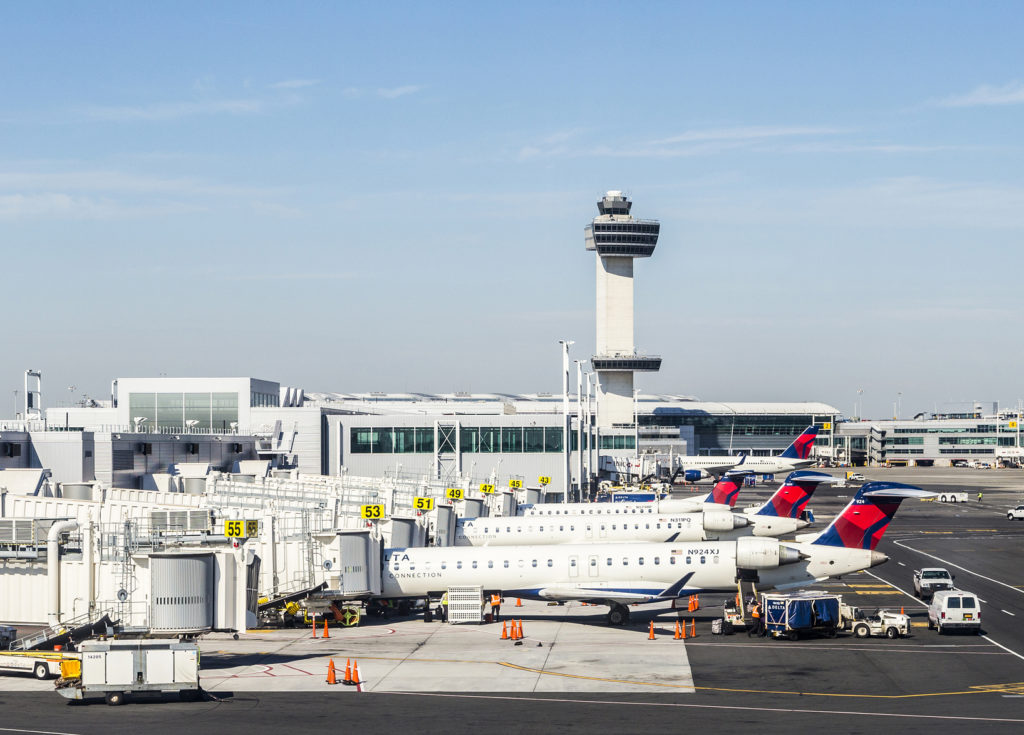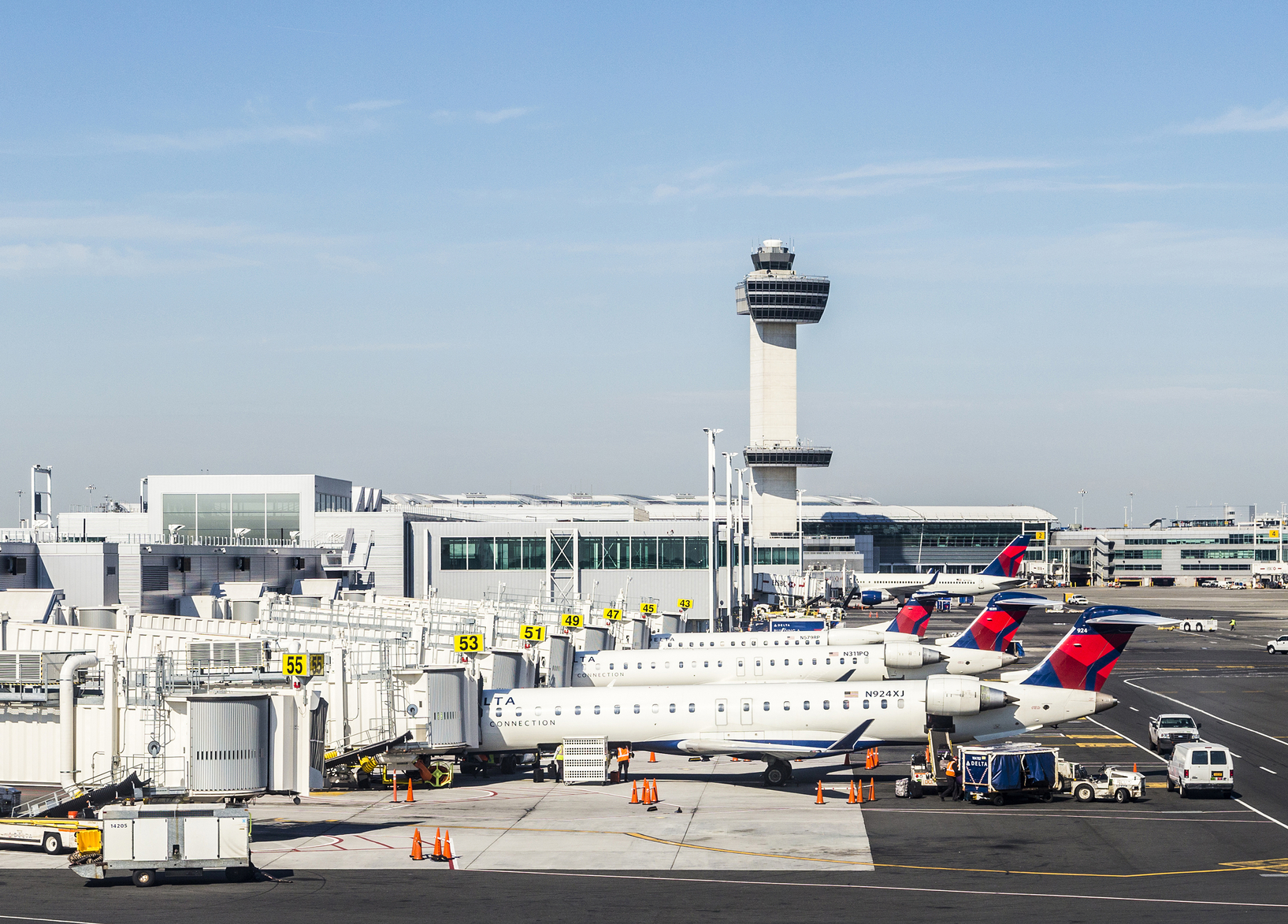The FAA Suspends the 80/20 Rule

New York, USA - October 20, 2015: Air Traffic Control Tower and Terminal 4 with Air planes at the gates in JFK Airport in NY. 1963 the airport was rededicated John F. Kennedy International Airport.
In response to the worsening coronavirus pandemic, the FAA has suspended the 80/20 rule that has been forcing airlines to operate “ghost flights” as a means for maintaining their airport slots.
80/20 Rule Suspension
The 80/20 rule states airlines must use each of their airport slots 80% of the time or risk losing them to competitors. To help soften the blow of the plummeting travel demand, the FAA has decided to suspend this requirement until May 31 for all coronavirus-affected US and foreign airlines. The agency commented on its decision, “In doing so, the FAA expects that US carriers will be accommodated with reciprocal relief by foreign authorities at airports in their countries, and may determine not to grant a waiver to a foreign carrier whose home jurisdiction does not reciprocate.” It continued, “The agency will continue to monitor the Coronavirus’s effect on travel demand and may adjust this waiver as circumstances warrant. The FAA will inform airlines of any decision to extend the waiver period as soon as possible.”
The suspended rule applies to New York-JFK (JFK), New York LaGuardia (LGA), and Ronald Reagan Washington National (DCA). Airlines that fly into four other airports, including Chicago O’Hare (ORD), Newark Liberty (EWR), Los Angeles (LAX), and San Francisco (SFO), will receive credit for Coronavirus cancellations as if they had operated.
IATA Calls for Other Regulators to Follow Suit
Due to the economic and environmental impacts of these “ghost flights,” the International Air Transportation Association (IATA) is calling for other regulators to follow the FAA’s actions. IATA Director-General Alexandre de Juniac said, “The world is facing a huge challenge to prevent the spread of COVID-19 while enabling the global economy to continue functioning. Airlines are on the front line of that challenge and it’s essential that the regulatory community work with us to ensure airlines are able to operate in the most sustainable manner, both economically and environmentally, to alleviate the worst impacts of the crisis.”






















